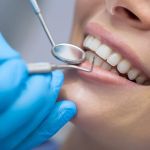How Does Children's Oral Health Impact Their General Health?
When it comes to children’s overall health, oral health often doesn’t get the attention it deserves. However, research has shown that a child’s oral hygiene can have significant effects on their general well-being, affecting not just their teeth and gums, but their entire body. From childhood to adolescence, healthy teeth and gums can pave the way for better health outcomes in later life. This article explores how children’s oral health impacts their overall health, why it’s important to develop good dental habits early on, and how parents can support their children in maintaining a healthy smile.
1. The Connection Between Oral Health and Overall Health
Oral health plays a key role in children’s overall health, as the mouth is often considered a window to the body. Poor oral hygiene can lead to a range of dental issues, such as tooth decay, gum disease, and even infections, which can affect other areas of the body. For instance, untreated cavities or gum disease can allow bacteria to enter the bloodstream, potentially leading to systemic conditions such as heart disease, diabetes, and respiratory infections.
One of the most common issues caused by poor oral health is tooth decay. Children who don’t brush regularly or who consume too many sugary foods and drinks are at a higher risk of developing cavities. These cavities, if not treated promptly, can lead to infections that require more serious medical attention, and even tooth loss. When children experience tooth pain or discomfort, it can interfere with their ability to eat, speak, or concentrate in school, ultimately affecting their quality of life.
2. Link Between Gum Disease and Systemic Conditions
It’s not just tooth decay that can impact a child’s general health; gum disease (also known as gingivitis or periodontitis) is another major factor. Gum disease occurs when bacteria in the mouth cause inflammation of the gums, and if left untreated, it can progress to a more severe form of disease. Research has shown that gum disease in children can increase their risk for various chronic health conditions.
For example, studies suggest that children with untreated gum disease may have a higher risk of developing respiratory infections, like pneumonia. Bacteria from the gums can enter the respiratory system, making the lungs vulnerable to infection. Furthermore, gum disease can potentially contribute to other systemic problems, such as heart disease and diabetes, by impacting the body's inflammatory processes. Although these issues are often more of a concern for adults, the foundation for these health problems is often laid in childhood.
3. Oral Health and Mental Health
In addition to physical health, poor oral hygiene can also affect a child’s mental and emotional well-being. Dental issues like cavities, bad breath, or visibly damaged teeth can lead to embarrassment or self-consciousness, especially as children grow older and become more aware of their appearance. This can result in anxiety, social withdrawal, or a lack of confidence, which, in turn, can impact a child’s school performance and relationships with peers.
Moreover, severe oral health problems, such as dental infections or painful conditions, can lead to chronic pain, which may negatively affect a child’s ability to focus on everyday activities, including learning and playing. Ensuring children have healthy teeth and gums helps them avoid these psychological effects and supports their overall development.
4. Developing Good Dental Habits from an Early Age
Preventing dental issues and promoting good oral health habits from a young age is essential in ensuring children’s overall well-being. Parents should encourage their children to brush their teeth at least twice a day with fluoride toothpaste, floss regularly, and avoid sugary snacks and drinks. Establishing a good oral hygiene routine early on can help prevent a host of dental issues down the road.
Additionally, regular dental check-ups are vital. The American Academy of Pediatric Dentistry (AAPD) recommends that children have their first dental visit by their first birthday or within six months of the eruption of their first tooth. Regular check-ups allow dentists to spot potential problems before they become serious, saving children from more painful and expensive treatments in the future.
5. Nutrition and Oral Health
What children eat plays a huge role in their oral health. Diets high in sugary foods and drinks can contribute to tooth decay and cavities. Sugar feeds harmful bacteria in the mouth, which in turn produces acids that erode the enamel on teeth, leading to cavities. Encouraging a balanced diet rich in fruits, vegetables, lean proteins, and whole grains can help protect teeth and gums from damage.
Calcium and vitamin D are especially important for strong teeth and bones, so including dairy products or calcium-fortified foods in your child’s diet can help them maintain healthy teeth. Additionally, drinking water—especially fluoridated water—can help wash away food particles and bacteria, providing additional protection for the teeth.
6. The Impact of Oral Health on Long-Term Dental Care Costs
Investing in your child’s oral health today can help save you money in the long run. Preventive care, such as regular brushing, flossing, and visits to the dentist, can prevent costly dental procedures in the future. Treating cavities early on is much less expensive than dealing with a more serious infection or needing root canals, fillings, or extractions later.
Furthermore, taking steps to maintain oral health can also reduce the likelihood of other health issues, which may save on medical bills over time. For example, addressing gum disease in children early can prevent the development of more severe health conditions, thus avoiding the cost of treating those conditions in the future.
In summary, children’s oral health is intrinsically linked to their overall health. Poor oral hygiene can lead to dental problems, which can negatively affect other aspects of their physical, mental, and emotional well-being. By promoting good oral health habits, encouraging proper nutrition, and scheduling regular dental check-ups, parents can ensure their children develop healthy smiles that will benefit their health for years to come. For further guidance on maintaining your child's oral health, visit Dentistry Toothtruth for expert advice and services.






 Sierra Family Dentistry4.0 (17 review)
Sierra Family Dentistry4.0 (17 review) TenBrook Orthodontics4.0 (39 review)
TenBrook Orthodontics4.0 (39 review) EPIC DENTAL SPA4.0 (8 review)
EPIC DENTAL SPA4.0 (8 review) Palm Valley Orthodontics5.0 (3 review)
Palm Valley Orthodontics5.0 (3 review) Arizona Orthodontic Centers5.0 (1756 review)
Arizona Orthodontic Centers5.0 (1756 review) Alameda Dental5.0 (118 review)
Alameda Dental5.0 (118 review) The Importance of Oral Health Education During Pregnancy for a Healthy Pregnancy
The Importance of Oral Health Education During Pregnancy for a Healthy Pregnancy Best Tips for Brushing Your Teeth Properly for Healthy Gums: Essential Techniques for Oral Health
Best Tips for Brushing Your Teeth Properly for Healthy Gums: Essential Techniques for Oral Health Why Skipping Dental Checkups Can Lead to Bigger Oral Health Problems
Why Skipping Dental Checkups Can Lead to Bigger Oral Health Problems Advantages of Porcelain Dental Restorations
Advantages of Porcelain Dental Restorations How Can Diabetes Cause Tooth and Gum Problems? Preventing and Managing Oral Health Issues
How Can Diabetes Cause Tooth and Gum Problems? Preventing and Managing Oral Health Issues Healthy Habits for Promoting Good Oral Health and Hygiene: Tips for a Healthy Smile
Healthy Habits for Promoting Good Oral Health and Hygiene: Tips for a Healthy Smile